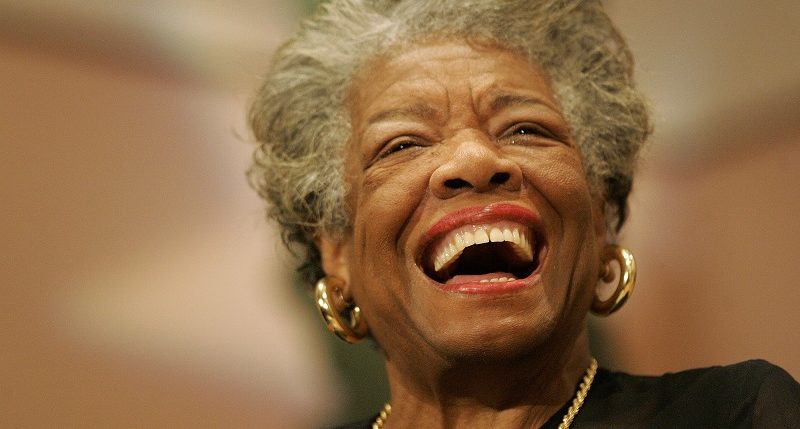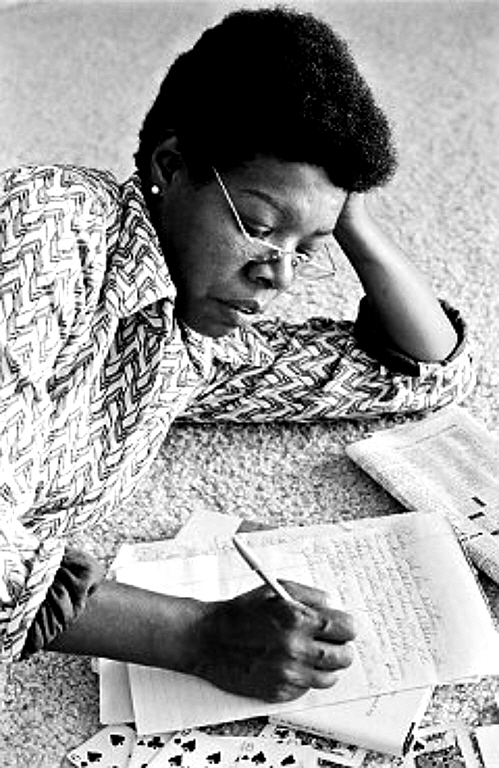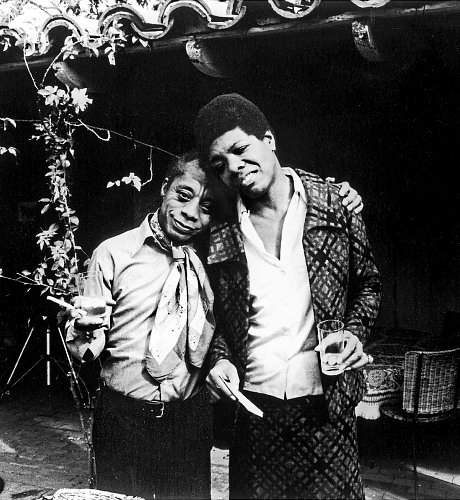
Dr. Maya Angelou Recommended: 10 Authors & Poets Who Inspired the “Phenomenal Woman”
From mid-19th century gothic poets to modern-day UN diplomats, Danielle Dorky identifies 10 poets and authors who influenced the late Dr. Maya Angelou.
As a writer, one of my guiltiest pleasures is eavesdropping, if you will, on other people’s perspectives. It’s the reason why I look forward to touring filmmaker John Waters’ hometown of Baltimore one day, an activity that may seem odd to some. When it comes to influential figures, it’s not enough for me to simply watch or read their works, I want to see the world as they did, I want to read the words that led to their epiphany and feel their brilliance secondhand.
Maya Angelou was certainly influential in my life. Growing up in a society that insists it’s equal and fair, and trying to reconcile that with your lived experience, which features harassment, abuse, and general disdain towards your race and gender on a regular basis, is not an easy task. Memoirs like I Know Why the Caged Bird Sings not only personify those experiences, they tell you with assertion: you, and your story, are real. You matter.
But what inspired Maya Angelou to write I Know Why the Caged Bird Sings? From whom did she learn to recite poetry and song with such rhythm and soul? When she was willfully mute from ages 7 to 13, whose lyrics filled the silence in her mind?
With this list of poets and authors who were meaningful to Dr. Maya Angelou, I hope to bring us closer to the things that gave the “Phenomenal Woman” joy, and that we might be able to tap into that inspiration to help us realize our own talents and dreams.
Edgar Allen Poe
Maya Angelou often cited Edgar Allen Poe as one of the first poets who grabbed her attention as a young child. During her mute years, she would memorize his poems, imagining how they would be read aloud. In an interview with the NY Times Angelou recalled how, at 14-years-old, she was escorted out of a theatrical performance by Gregory Peck for protesting, “That’s not the way the poem goes!” in response to hearing him recite “Raven” without syncopation.
Thomas Wolfe
Angelou claimed to have read “everything Thomas Wolfe ever wrote,” also memorizing many of his works as a child. One of the most celebrated American novelists of the early 20th century, Wolfe is credited as paving the way for the autobiographical fiction genre and there’s no doubt Maya’s admiration for the author helped strengthen her own autobiographical works. She mentions Wolfe in her first memoir I Know Why the Caged Bird Sings, remembering how she spent the final trimester of her hidden pregnancy reading his novel Look Homeward, Angel.
Anne Spencer
Angelou often praised former teacher and family friend Mrs. Bertha Flowers for helping to coax her out of her muteness by showing her the beauty of spoken word. Some of that spoken word included Anne Spencer, the first African-American to have her poetry included in the Norton Anthology of American Poetry; she gained recognition when her unintentional protest poem “White Things” was published in 1923. Prior to Spencer’s death in 1975, Maya was known to visit the poet at her home and garden in Lynchburg, Virginia. A collection of Spencer’s poetry with commentary was published posthumously as Anne Spencer: Ah, How Poets Sing and Die!
John O. Killens
When Maya Angelou met literary luminary John Oliver Killens in 1959, she was still doubtful of her talent as a writer. Killens, who would go on to mentor an entire generation of African American poets and authors through the Harlem Writers Guild, convinced Angelou to seriously pursue her craft, move to New York and join the guild. She debuted the musical revue Cabaret for Freedom the following year. John O. Killens is best known for his published novel Black Man’s Burden.
Ralph Ellison
Ralph Ellison’s debut novel Invisible Man is often referred to as one of the most important novels published in the wake of World War II. Though controversial, the novel won the U.S. National Book Award for Fiction in 1953 for its focus on the differing forms of racism within America and the communist party. Maya told The Week, “When I first read Ellison’s 1952 novel, it was as if somebody turned a bright light on in a dark corridor. That which I thought was so frightening, so terrifying, was just a shadow.”
Kwesi Brew
Maya Angelou and Ghanaian poet Kwesi Brew became close while Angelou lived in Ghana from 1962 to 1965. She often references their friendship in her fifth memoir All God’s Children Need Traveling Shoes. Brew’s nickname for Angelou was “No Return” and in 1995, he published the poetry collection Return of No Return with three poems that were written as part of an ongoing conversation with Angelou.
James Baldwin
Maya Angelou and James Baldwin’s friendship is well-documented. Angelou often referred to the American expatriate as a “friend and brother” and is one of the key people who pushed her to pen her first biography, I Know Why the Caged Bird Sings. In December 1987 when Baldwin passed away from cancer, Maya gave a heartfelt and moving eulogy entitled “His Voice Remembered; A Brother’s Love” at his New York services. It’s evident that the varied wordsmith, who found success writing plays and essays, in addition to autobiographical and fictional works, influenced Angelou’s similarly dynamic career.
Paul Laurence Dunbar
Paul Laurence Dunbar, who was one of the first prolific African American poets, and rose to acclaim in the late 19th century, is responsible for providing the line of poetry that would go on to be the title of Angelou’s most well-received autobiography, I Know Why the Caged Bird Sings. The draw for Angelou was simple, “When you are put down by the larger society and there’s a poet who compares the color of your skin to chocolate and brown sugar, you fall for it, because you need it. Paul Laurence Dunbar — who was one of the great poets of the 19th and 20th centuries — wrote about African-Americans, and he showed me the beauty of our colors and the wonder of our music.”
Frances Harper
Like Anne Spencer, Frances Harper was one of the first female African American poets that Angelou was introduced to, and early 19th century abolitionist’s story inspired her. The following excerpt from Frances Harper’s poem “The Slave Auction” appears in Maya Angelou’s second collection of essays, Even the Stars Look Lonesome:
“And men, whose sole crime was their hue,
the impress of their Maker’s hand,
and frail and shrinking children too
were gathered in that mournful band…”
Kofi Annan
After living in Ghana for several years during the Sixties, Angelou went on to hold the coastal African republic in special regard. In February 2013, she invited Ghanaian diplomat Kofi Annan to speak with her during her public radio Black History special, “Telling Our Stories.” Angelou was drawn to the 2001 Nobel Peace prize winner’s empathetic and courageous character, and recommended his 2012 memoir Interventions: A Life in War and Peace during a recent NY Times interview.
As long as we continue to read her words, Dr. Maya Angelou will never stop teaching us. Perhaps in learning the authors and poets who first impressed her, and in studying their works, we can locate the origin of another portion of her wisdom. After all, a little secondhand inspiration can go a long way.
Categories: Feature, Uncategorized


